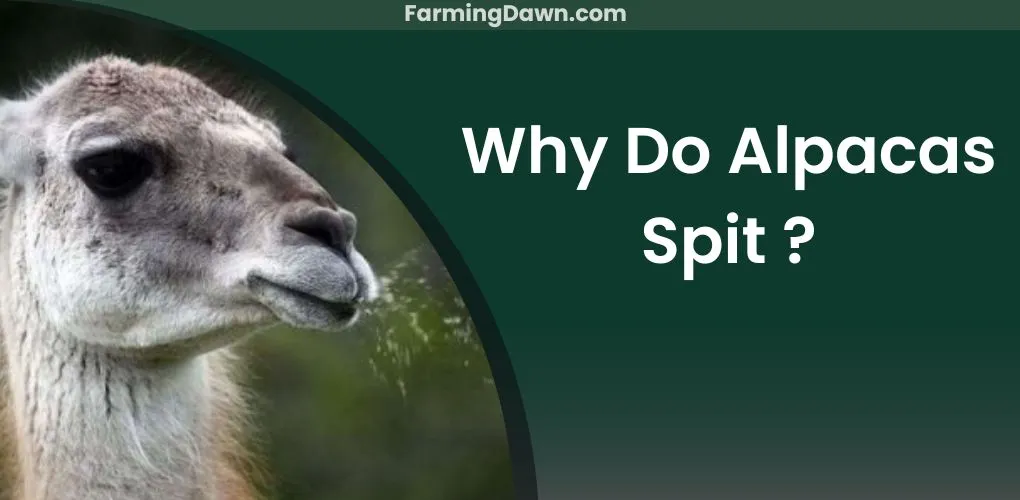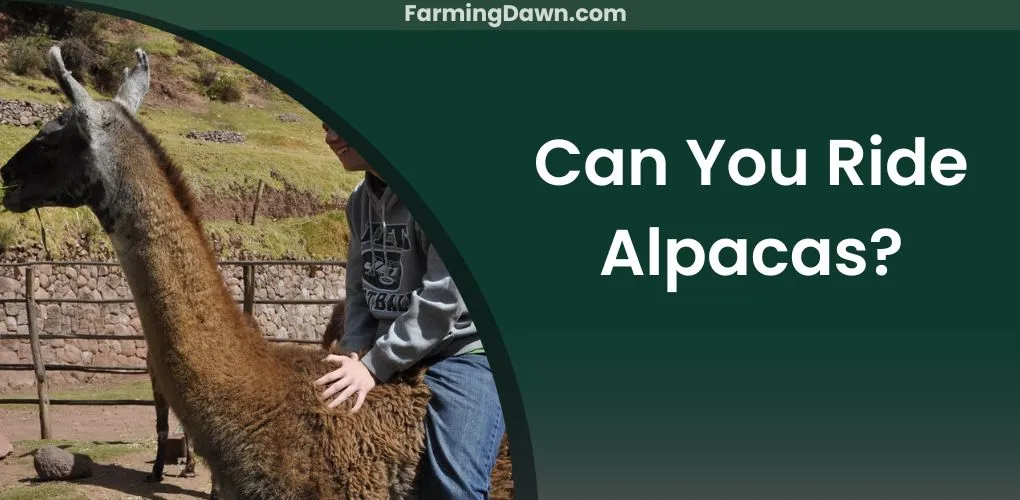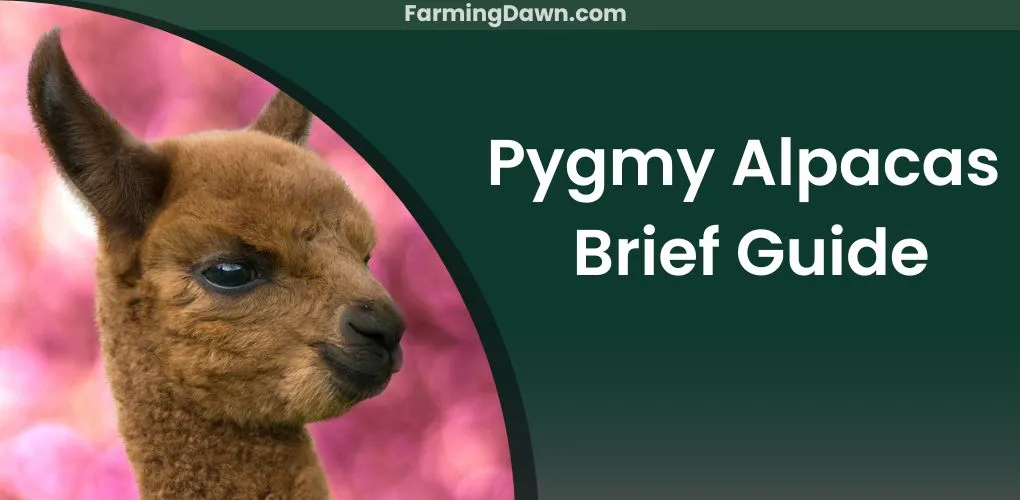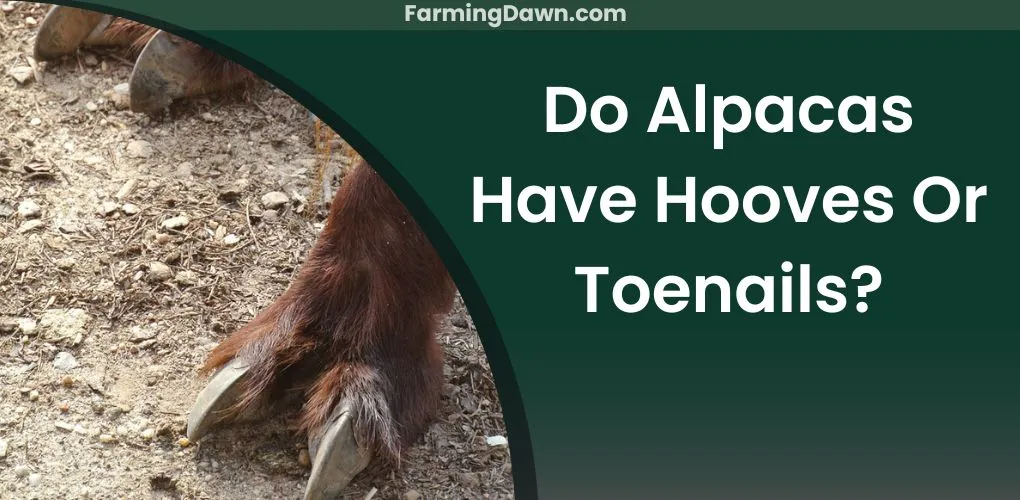There’s a unique sound that comes from the alpaca—a gentle hum that has been captivating farmers and onlookers for centuries. It’s one of nature’s greatest mysteries, and it leaves us asking ourselves: why do alpacas hum? We may never truly know why they make this melodic noise, but we can take a closer look at their behavior to help us better understand what could be behind the strange sound.
Reasons Why Do Alpacas Hum
Alpacas hum for a variety of reasons.
- Alpacas hum to communicate with each other.
- Alpacas hum to bond within the herd, so they can feel safe in their environment.
Alpaca humming is an expression of feelings – they might be feeling content or happy, scared or anxious. But do alpacas become dangerous if they are snorting or grumbling? Not really, they might be showing warning signals to predators or other elements in their surroundings that are causing distress to them. Alpacas also spit to show discomfort or displeasure. Alpaca hum is also used when alpacas are playing together – it’s like a jovial song that brings them closer together!
Humming is not just something reserved for humans either – animals all over the world have been known to make vocalizations similar to singing. Alpacas are no different, using this sound partly as a form of communication and partly as a way to express their emotions.

Is It Normal For An Alpaca To Make Noises?
Alpacas have been found to make a variety of noises, from humming and twittering to bleating and braying. While it is normal for alpacas to hum, there are some key differences between how they vocalize compared to other animals.
About 60% of the sounds that an alpaca makes come in the form of humming, with the rest coming as grunts or snorts. Interestingly, only male alpacas will produce this type of humming sound.
The pitch and frequency of an alpaca’s hum can indicate its mood – higher-pitched noises signify alarm while lower-pitched ones convey contentment. This means that if you pay close attention, you can get an insight into your alpaca’s emotional state just by listening out for any changes in its vocalizations! Therefore, although it is normal for an alpaca to make noises, understanding what these mean can help foster a closer bond between humans and their furry friends!
Types Of Sounds Alpacas Make
Humming
Alpacas are known for their gentle humming sound. This humming noise is a way for them to communicate with one another and it’s a beautiful thing to witness. If you’ve ever heard an alpaca humming, it can be quite mesmerizing. It’s almost like they’re singing a song of love and peace!
Alpacas often hum when they’re content or feeling safe, so it can bring a sense of comfort and belonging to those around them. The humming sound is unique and soothing, and it can make you feel connected to something larger than yourself.
Clicking
Alpacas are known to click their tongues when they’re content and comfortable. It’s a kind of noise that’s unique to alpacas; you won’t hear a cow or a sheep making these kinds of sounds. The click is like an expression of comfort and joy, letting us know that all is right in the world.
Alpaca clicking is not just limited to contentment; they may also do it when they’re trying to communicate something else. If you spend enough time around them, you’ll begin to distinguish between different types of clicks and understand what your alpaca wants from you. You can almost feel the connection between the two of you as you interact with each other through clicks and other alpaca noises.
Screaming
Screaming is an instinctive way for alpacas to communicate fear, alarm, or aggression. It’s often accompanied by other behaviors such as running and head-tossing. Alpaca screaming is unique in that it has a high-frequency sound and can be heard over long distances. The sound itself is unmistakable and recognizable to any alpaca owner. When an alpaca screams, it can cause a ripple effect among the herd; other animals may follow suit in what scientists refer to as “emotional contagion”.
Screaming is also an effective way for alpacas to ward off predators or intruders. If you ever find yourself within earshot of an alpaca screaming session, back away slowly and try not to startle them further – chances are they’ll stop soon enough!
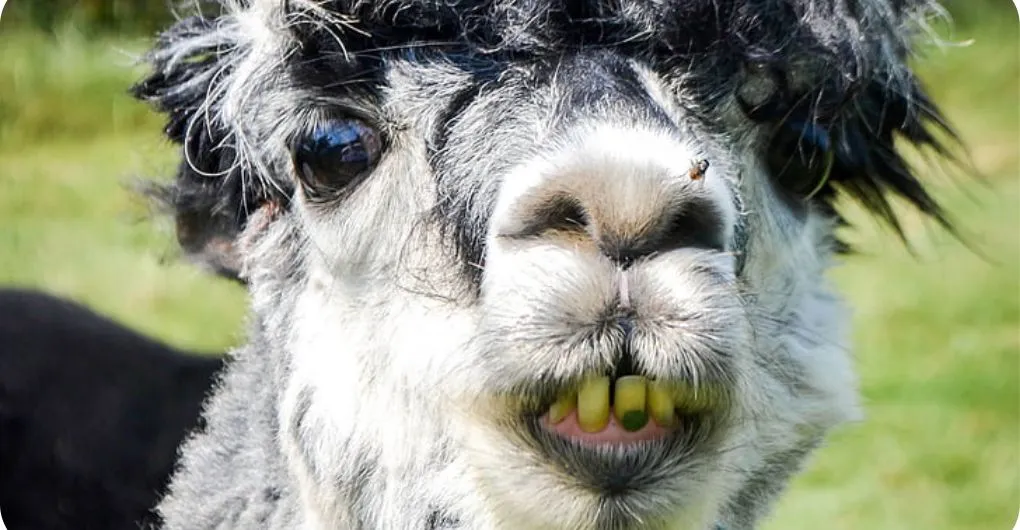
Moaning
Alpacas also emit moaning and groaning noises that are more low-pitched and subdued than their screaming counterparts. These moans and groans are part of their normal vocal repertoire, used for communication between individuals within the herd.
Moaning and groaning can be heard when an alpaca is feeling relaxed or content in its environment. It’s a way for them to express their presence in the herd, acting as a reminder that they feel secure in their surroundings.
Alpaca moans indicate that they’re looking for companionship or security from other members of the group. In addition, alpacas may moan or groan when under distress or pressure, such as when being handled by humans or during mating season.
Alpacas’ moans and groans can range from soft to loud depending on how content they’re feeling. The noises may sound like someone lightly snoring with a hint of a grunt mixed in, helping to establish a sense of harmony within the flock. They can also be quite soothing, providing an atmosphere that encourages social bonding among members while giving off an air of relaxation in their wake.
Snorting
When you hear an alpaca snort, it may sound like a high-pitched whistle or a bark. It can also be loud and gruff depending on how excited the animal is. Some alpacas will even cluck their tongues when they’re feeling particularly vocal! While some people might find alpaca snorting off-putting, it’s quite endearing and can show just how much these animals care for one another.
Alpaca snorting is part of what makes them so fascinating – these creatures have their language, and it’s unlike anything else in nature!
Grumbling
Grumbling is one of the most common alpaca vocalizations, and it’s a sound you’re bound to hear if you spend time around these animals. Grumbling is an expression of contentment or annoyance and can be heard during feeding or when two alpacas are interacting. It usually consists of low-pitched sounds and is often accompanied by snorts or other vocalizations. Alpaca grumbling can range from a subtle, purring rumble to a loud, guttural bark.
Alpacas also use grumbling to communicate with humans. When they’re feeling content, they may grunt or murmur in response to a soft pat or gentle scratching behind the ears. This type of vocalization has been known to make people feel connected to their alpacas in an almost spiritual way!
On the other hand, when an alpaca grumbles due to displeasure, it’s usually louder and more intense than happy grumbling. So it’s important to recognize when your alpaca is trying to tell you something!
How Can You Tell If An Alpaca Is Happy?
Alpacas are known for their delightful vocalizations and humming as a way to express emotion. But how do you know if an alpaca is happy? Alpacas hum when they’re feeling content, expressing affection, or showing appreciation. They also make other noises like clucking, snorting, and clicking with their tongues to communicate with others in the herd.
If an alpaca is relaxed and calm, it likely means that it’s enjoying its environment and feels safe around you. You may even hear a low-level humming sound coming from them!
On the other hand, if an alpaca appears agitated or stressed out – ears flat against its head or tail flicking rapidly back and forth – then it’s best to give them some space until they have calmed down again.
It can be difficult to accurately gauge whether or not an animal is truly happy but observing their behavior and listening closely should provide clues as to their emotional state at any given time.
Alpaca shearing, healthy food, water, hay, grass, proper bedding, and providing adequate space are some of the key factors to keep your alpaca happy and content on your farm.
Does An Alpaca Get Sad?
As we discussed, alpacas are social animals, and they often hum to express their emotions. Humming is a form of vocalization for alpacas that can show affection or dominance.
When an alpaca hums, it usually means that the animal is feeling content and relaxed. Alpacas also hum when they’re scared or stressed out, which helps them cope with difficult situations by letting off some steam. When an alpaca is feeling sad or lonely, it may start to hum more frequently to comfort itself.
Humming is just one aspect of emotional expression in alpacas – there are many others ways they can show sadness too. If you spend time around these animals, you’ll notice subtle changes in body language such as drooping ears and sunken eyes that indicate distress or unhappiness.
Moreover, studies have shown that alpacas display different behaviors when exposed to negative stimuli compared to positive ones – further evidence of their ability to experience and express emotion.
Does An Alpaca’s Mood Affect Its Sound Production?
A recent study found that up to 75% of all alpaca vocalizations can be attributed to expressing emotions or communicating with other animals and humans.
Humming has been documented by researchers studying alpacas in both captivity and the wild, indicating that this behavior is ingrained in their instincts. Furthermore, studies have shown that humming is more common among younger alpacas than adults, suggesting that this could be part of their learning process and socialization within the herd.
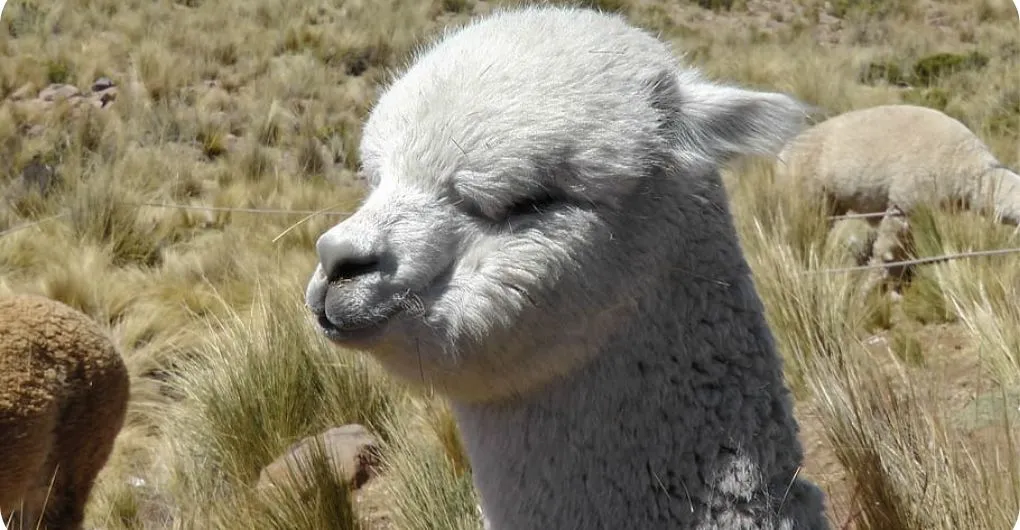
As alpacas become accustomed to certain situations, they become less likely to produce loud noises, like humming, but still rely on quieter forms of communication amongst each other. This shows us how important these vocalizations are for maintaining harmony within a herd and developing relationships with our furry friends!
The Role Of Humming In The Social Interaction Of Alpacas
Humming serves an important purpose in the social structure of alpacas; it helps them understand each other’s roles within their herd. Through these vocalizations, they can tell who’s dominant and who has more experience with certain situations.
Also, alpaca herds often have complex hierarchies that require some individuals to take on leadership roles while others must follow specific rules and restrictions. By recognizing one another through humming, they’re able to keep order among themselves without any physical confrontations or aggression.
Overall, humming plays an essential role in how alpacas interact socially with one another daily. It enables them to communicate effectively when words don’t suffice so that everyone understands what needs to happen next and how certain tasks should be completed safely and efficiently. Therefore, we see that humming is much more than just making noise – it’s an integral part of life for these unique creatures!
Why Do Alpacas Moan?
Alpacas may even use moaning sounds when expressing pain or fear. When an alpaca feels threatened by something it doesn’t understand, it may respond with loud moans which indicate distress or alarm. These vocalizations are particularly useful for alerting nearby alpacas of potential danger from external sources. Furthermore, these moans can trigger herding behavior amongst group members which further enhances safety within the herd.
The Effects Of Stress On The Sound Production Of An Animal
When faced with dangerous situations or extreme emotional distress, animals produce high-frequency noises as a way of expressing fear and seeking comfort from others. For these reasons, many researchers believe that alpacas might be using their hums to relieve stress in much the same manner.
Also, by releasing tension through low-frequency vibrations, alpacas may be attempting to foster feelings of love and affection between themselves and other herd members.
In addition to being used as a coping mechanism during challenging times, research suggests that some types of alpaca vocalizations can even act as soothing lullabies for young crias (baby alpacas). This could explain why humming is so common among mother-cria pairs; by creating a calming environment for their offspring, mothers may be providing them with better protection against potential predators or dangers within their environment.
Why Do Alpacas Hum? Final Thoughts
In conclusion, understanding why do alpacas hum and produce a wide variety of noises can provide us with valuable insight into their behavior and needs as well as their relationship with others in their group. We’ve seen that an alpaca hums for many reasons, including communicating with other alpacas and expressing their emotions. It’s normal for them to produce a range of sounds, from humming to moaning, depending on their mood or situation.


